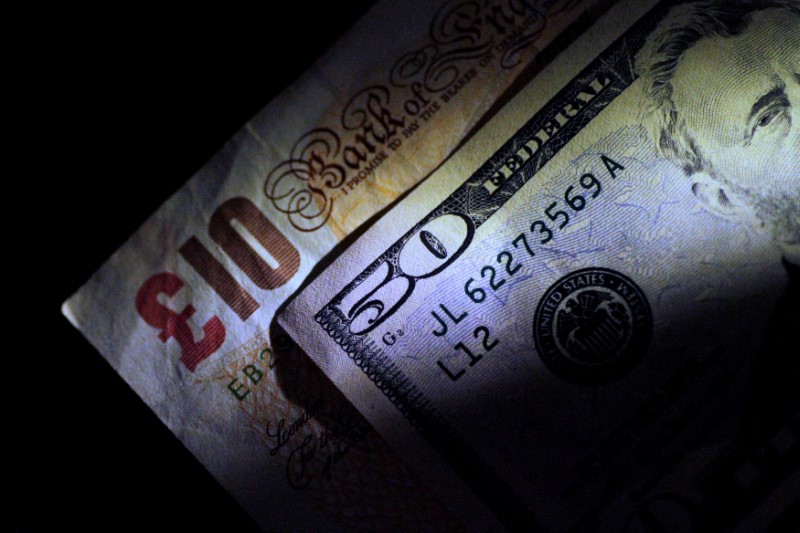 © Reuters.
© Reuters.
Investing.com - The U.S. dollar drifted lower Monday at the start of a data-packed week, while sterling gained on a degree of confidence returning to U.K. consumers.
At 04:00 ET (09:00 GMT), the Dollar Index, which tracks the greenback against a basket of six other currencies, fell 0.1% to 103.262, heading for a monthly loss of around 3%, its worst performance in a year.
PCE data to support end of Fed hikes?
The dollar has been on the backdoor for most of this month on growing expectations that the Federal Reserve could start cutting rates next year after likely ending its rate-hiking cycle earlier this month.
These hopes were largely driven by October's unchanged reading on consumer price inflation, and traders will turn to another U.S. inflation report on Thursday to support the case for an end to Federal Reserve rate hikes.
The Fed’s preferred inflation gauge, the personal consumption expenditures price index, is expected to have risen 0.1% in November, a fall from rose 0.4% in September, which matched the rise in August.
The core reading, which strips out food and fuel costs and is considered a better gauge of underlying inflation, is expected to have risen 3.5% on a year-over-year basis.
Sterling gains on returning consumer confidence
In Europe, GBP/USD rose 0.1% to 1.2616, climbing to an over two-month high, helped by a reading of consumer confidence on Friday that showed people in Britain turned more optimistic about the outlook for the economy and their personal finances this month.
The Bank of England kept rates on hold for a second consecutive meeting earlier this month, with inflation falling to 4.6% in October from above 11% just over a year ago.
However, getting inflation down to the central bank's 2% target will be "hard work", said Bank of England Governor Andrew Bailey in an interview published earlier Monday, as most of its recent fall was due to the unwinding of the jump in energy costs last year.
EUR/USD rose 0.1% to 1.0941, with sentiment among German exporters improving in November, according to a survey by the Ifo economic institute released on Monday.
The institute's export expectations indicator rose to minus 3.8 points in November from minus 6.3 points in October.
"However, the export economy still isn't managing to develop any momentum," Klaus Wohlrabe, head of surveys at Ifo, said. "German companies have yet to benefit much from the economic upswing in many countries."
Data released Friday showed that Europe’s largest economy shrank 0.1% in the third quarter compared with the previous three months.
Yuan slips ahead of key PMI data
In Asia, USD/CNY rose 0.1% to 7.1547, following a slightly weaker daily midpoint fix by the People’s Bank of China.
Profits at China's industrial firms extended gains for a third month in October, albeit at a slower pace, data on Monday showed, but all eyes this week are on the purchasing managers index data for November, due on Thursday, for more cues on business activity.
USD/JPY traded 0.2% lower at 149.08, with the yen among the better performers of the day, with Japanese industrial production and retail sales data on tap this week.
AUD/USD rose 0.3% to 0.6600, ahead of key inflation and retail sales data due later in the week. Reserve Bank of Australia Governor Michele Bullock is also set to speak this week.

